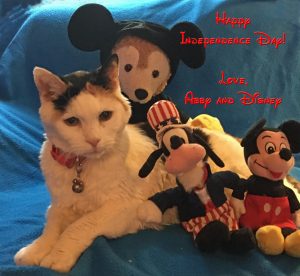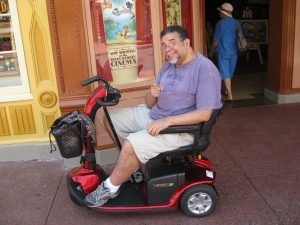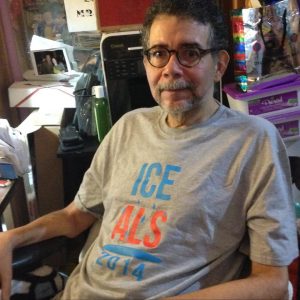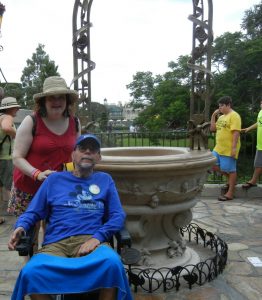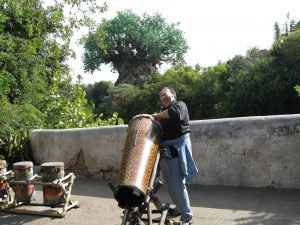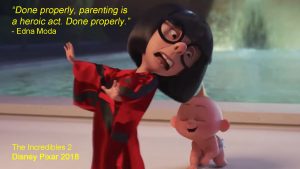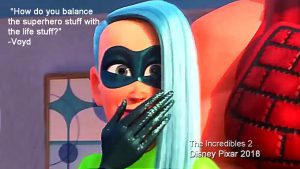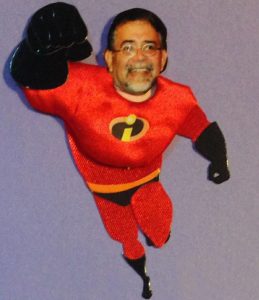July 6 – Not A Traditional International Kissing Day

A PhotoPass photographer caught this moment in front of the Castle at Walt Disney World. It was actually the first time we returned after Ben’s ALS diagnosis in 2010
Once again, I am faced with the conflicting emotions of joy that school is over for the year, and sadness over the memories of the summer of 2015, Ben’s last summer. We spent it in the hospital, where he ultimately succumbed to ALS. Today, July 6, marks the third anniversary of the day that Ben had a respiratory crisis and we ended up in the Emergency Room at Mount Sinai Medical Center. As I write this post, I am cuddled up with Ben’s favorite Disney throw, with Sully and Mike from Monster’s, Inc and personalized with his name. I covered myself with it last night, too. On these kinds of anniversaries, I refer back to my blog post from last year year. I can’t say that much has changed- it remains a somber day when I prefer to be by myself with my thoughts and our photos, and maybe watching Monsters, Inc., which always gave him such delight.
For me, this is simply the date when everything changed. I woke up this morning thinking about how I woke up on this date three years ago and Ben said he could not breathe. I think of how we waited for the ambulance, not knowing what would happen. How ironic it is that today is International Kissing Day, because on that day he was connected to a ventilator and his mouth was covered with the Bipap mask. For the next few weeks, before he agreed to a tracheostomy, our way of kissing was to blink our eyes tight and then I would throw him a kiss- he couldn’t use his arms or hands to throw one back.
I remember that despite the frenzy of an Emergency Room, it did not occur to me that I could lose Ben at that time. I was kept very busy as the health care proxy and the only family member present. I emailed and texted his family and our friends and answered a lot of questions. I tried to stifle resentments towards family who had lots of questions, suggestions and judgments but had never been there for him as his ALS was progressing. I was surrounded by people but felt very alone. I talked to Ben but had difficulty reading his lips through the mask. And, he slept a lot, leaving me to my own thoughts about what would happen next. I shared all of this in last year’s post.
I did not make any plans for today, not knowing how I would feel, but allowing myself to be okay with anything I chose to do. I have learned that I cannot predetermine what’s right for me in these circumstances. I don’t want to hear that I should keep living, or I should make plans to distract myself, or that Ben would want me to be happy. Sure, it’s all true, but it doesn’t matter. Today, my head is swirling and I just want to think about Ben, and that day. It’s an odd feeling that nobody else would even remember this date, and I wouldn’t expect them to. That does, however, underscore that when this crisis hit, it was just Ben and me. And, as awful as it was, I was there for Ben, he knew he could rely on me, and there was a lot of love and trust. We may not have been a real Disney prince and princess, but the profound love and caring that we expressed throughout his experience with ALS gave special meaning to the lyrics of So This is Love, from the original, animated Cinderella.
Yesterday, I went for a walk in Central Park. I love walks through the Park, despite the heat, because I have my music in my ears and I can let my thoughts flow. I have my route, and I headed for Belvedere Castle, from which you can look down and see lots of turtles. Ben and I loved turtles and a turtle was his icon in the original messaging program that we used. I was shaken to find that the Castle was under scaffolding and closed to visitors. It was so important for me to see those turtles yesterday because of today’s anniversary. Not knowing what to do, I proceeded on my walk and was lured to a little gazebo that was right on the water. I had never walked there before but I was drawn to it. There I saw several little turtles! I do look for signs that Ben is with me, and this was my sign. I took many pictures and just watched them for a while, talking to Ben in my head and knowing that we would have been so happy to have discovered them, at the same time feeling that he was with me. Further on in my walk, I found the fountain that I never seem to be able to find when I’m looking for it. I tossed some coins and made wishes (see my post on wishes), shedding a few tears. I try my Disney best to be optimistic even when I’m sad. Sure enough, when I walked to the water by the fountain, I saw more turtles and even some fishies. I have never seen so many turtles at the Park, and I believe that they carried the message that Ben is watching over me and that even as I keep moving forward, he will maintain a presence.
This date may always be a difficult day. In my mind, it will always be thought of as the day that everything changed. I see all kinds of social media posts about International Kissing Day and I think that it was the first day when I couldn’t kiss Ben.
I do notice that the intense and debilitating grief has shifted. I know that today’s fog will lift, and that I will also remember days in the hospital that, despite the devastation and horrible decisions, were filled with kisses and with love, music and even laughter. Just not today.
